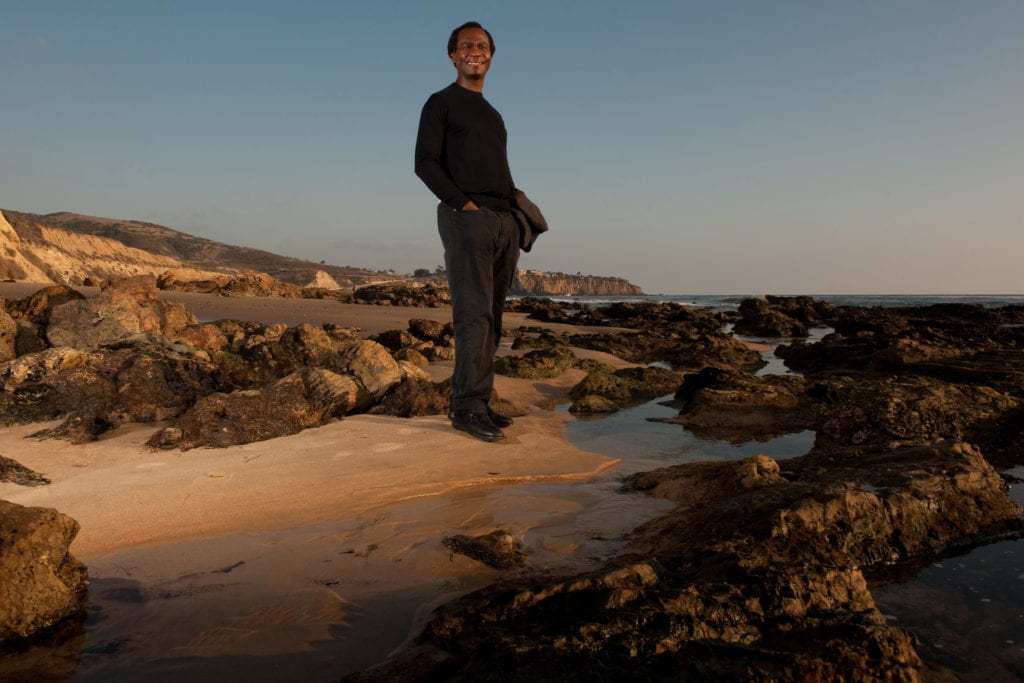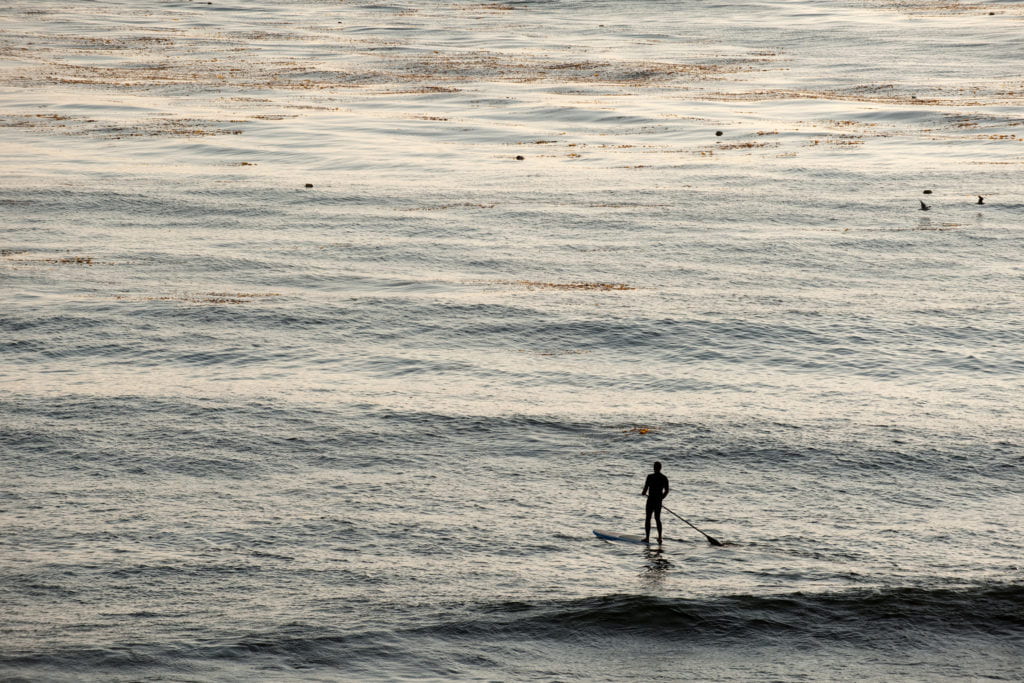No day at the beach
Global warming could cut into mental health benefits of beaches.
It’s 67 degrees and sunny on a November afternoon at Crystal Cove State Park. Waves crash gently into transparent tide pools and fan out over empty golden sands.
“This is ideal: cool temperatures, no crowds. I love the sound of the waves; that’s the most calming sound in the world to me,” says UC Irvine public health professor Oladele Ogunseitan. He glances down. “This beach seems narrow, though.”
It’s not just an academic point. According to findings by him and others published in the December issue of the Journal of Environmental Psychology, the hotter weather, rising seas and shrinking sands caused by climate change could cut into the very real mental health benefits of coastal visits.
“We underestimate the contribution of state beaches like this. It sounds like just fun, but it’s not,” says Ogunseitan, chair of UCI’s Department of Population Health & Disease Prevention. “People go through processes here that help them focus better and have less mental stress. They become more productive.”
“One way we can prevent the huge burden of mental health costs is to take care of these places. With climate change, these impacts will get worse and worse otherwise.”
To the researchers’ surprise, they found that Southern California’s breezy winter days and low tides were more restorative for coastal visitors than summer scorchers and booming surf.
Feeling too warm and having to fight for a spot in the sun on narrower beaches work against a feeling of well-being. Even a foot less space on a crowded day can make a difference.
The study is the first known to compare people’s perceptions of coastal conditions and feeling of being refreshed to official data on tides, air and water quality, and temperatures. Nearly 1,200 individuals of all ages answered questions in all types of
weather over the course of a year at three state beaches in Orange County.
“Visitors perceived greater restorativeness at beaches when ambient temperatures were at or below mean monthly temperatures and during low tides,” writes Aaron Hipp, lead author on the paper and a former graduate student of Ogunseitan’s who is now an assistant professor of public health at Washington University in St. Louis.
Pollution is also a factor. Beachgoers were three times more likely to enjoy themselves and feel less stressed if they did not experience air pollution – often seen as a brown haze on the California horizon.
They were nearly twice as likely to feel restored if they did not perceive water quality problems.
“People have high expectations of what summer should be, and if things drop below that, it takes the wind out of them,” Ogunseitan says. “They don’t have a feeling of being away.”
Raised in the Nigerian city of Lagos on the Atlantic Ocean, he says the findings do not bode well for coastal visitors worldwide if the effects of climate change continue or even worsen in coming decades.
When the research team culled beachgoer responses on days when temperatures were 3 to 8 degrees warmer (Fahrenheit) than historical averages – the predicted temperature rise along the California coast over the next half century – the conclusion was overwhelming: The warmer the environment, the less it was rated as psychologically restorative and the greater the stress.
Ogunseitan says the study and a similar one they did on inland natural space provide compelling evidence that despite budget woes, state officials should not close or otherwise cut back on public parks.
Pointing to World Health Organization data on the global prevalence and economic costs of mental illness, he said that to do so could lead to increased workplace absenteeism and other significant impacts that might not be visible at first glance on a sunny day at the beach.

